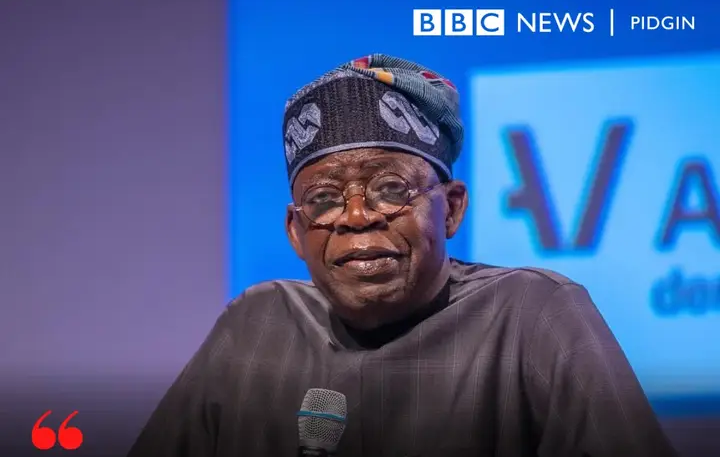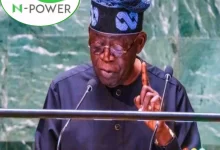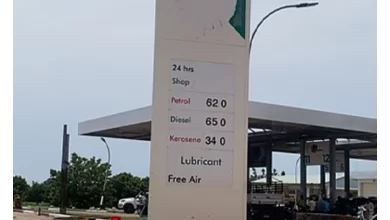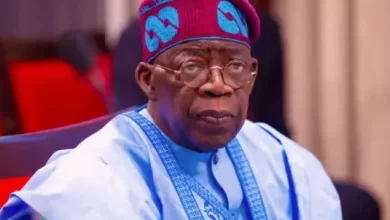New Minimum Wage 2024 Update On How labour can achieve April take off date

New Minimum Wage 2024 Update On How labour can achieve April take off date
New Minimum Wage 2024: Experts assign FG and labor to expeditious, amicable negotiations; caution against unjustified pay increases; and propose initiatives in the areas of housing, health, education, and other sectors. NLC claims that a minimum wage below the UN poverty line causes poverty.
Organized labor and other important stakeholders have charged the Federal Government with ensuring a smooth negotiation process that would lead to a timely agreement and implementation of the new wage as Nigeria gets ready for talks about a new national minimum wage.
They pointed out that President Bola Ahmed Tinubu should honor his pledge to lessen Nigerians’ suffering by seeing to it that a new national minimum wage is implemented within the allotted time frame, given the socioeconomic crises plaguing the nation, particularly with the removal of fuel subsidies.
In his live New Year’s broadcast, Tinubu pledged to end the suffering of Nigerians and to enact the new minimum wage, which is scheduled to take effect in April of this year.
However, organized labor had criticized the federal government for not showing enough dedication to bringing its promises to fruition. One such promise was the formation of a minimum wage negotiation committee, which was scheduled to be announced in November 2023 as per the agreement reached on October 2, 2023, during a meeting with labor unions.
As the negotiation process begins with a tripartite committee made up of the government, labor, and employers in the private sector, they said that the Tinubu administration had a record for breaking promises and asked the government to “walk the talk” in the new year.
Nkeiruka Onyejeocha, the minister of state for labor and employment, did, however, assure that the committee would shortly be constituted and that the obstacles to the introduction of a new wage would soon be resolved.
The Nigeria Labour Congress (NLC), led by Hassan Sunmonu, wanted N300 per month, but the government only authorized N125. This marked the beginning of organized labor’s fight for a national minimum wage in Nigeria during Shehu Shagari’s democratic government in 1981.
From 1981 until now, or at least until April 18, 2019, when the current national minimum salary of N30,000 went into effect, there has been a violent “fight” between the government, employers in the private sector, and organized labor over national minimum wage issues.
According to information acquired by The Guardian, no minimum wage has been reached or awarded in Nigeria in 38 years.

Between 1981 and 2019, the national minimum wage was reviewed approximately six times: in 1981 (N125), 1990 (N250), 1998 (N300), 2000 (N5, 500 and N7, 500), 2011 (N18, 000), and 2018 (N30, 000).
For the Nigerian government to address the ongoing minimum wage issue and be viewed as meeting its obligations by the International Labour Organization (ILO) standard, stakeholders believe that the country must immediately implement a workable mechanism for setting and regulating the national minimum wage to mitigate the impact of the increase in petroleum products, which are largely responsible for the country’s economic growth.
They contended that Nigeria still lacked an efficient system to handle national minimum wage issues without labor threats, warning strikes, or actual strikes, even despite the 2019 Wage Act, which calls for a five-year wage review period in the nation by the Tripartite Committee on National Minimum Wage (TCNMW).
For example, Paul Opone and Kelvin Kelikwuma said in their study that the 2019 national minimum wage talks and execution were marked by politics, calling them the longest in Nigerian history thus far.
They contended that the primary obstacle to the frequent confrontations between the government and labor in Nigeria, which have a detrimental effect on amicable industrial relations, is the lack of functioning standing machinery that focuses on labor economics when determining the circumstances and timing of a minimum wage review.
They contend that the government’s politicized response to labor demands has made industrial activities one action too many.
The pair told The Guardian that it was past time for the Nigerian government to create a salary adjustment template managed by an index factor that automatically raises the minimum wage of employees by a specific percentage whenever necessary, in light of the country’s preparations for yet another round of negotiations.
They said that this would do away with the customary protracted discussions, threats, walkouts, and no-work, no-pay policies that have consistently defined Nigeria’s national minimum wage fixing and regulation.
In addition, they pointed out that to create a favorable environment for labor relations across the nation, the national minimum wage ought to act as a baseline for negotiations between states and their labor organizations, much like in a truly federal system.

To guarantee that they determine a minimum wage that is in line with the current cost of living, the two demanded that all parties involved come to a mutual understanding.
They characterized 2023 as a bad year marked, among other things, by the depreciation of the naira, increased inflation that had an impact on real disposable earnings, and the elimination of fuel subsidies.
According to the pair, “the removal of petroleum product subsidies worsened working people’s challenges, unleashing severe pain and contributing to galloping inflation even as it increased inequality and poverty.”
According to labor experts, it was imperative to find a wage structure that would allow workers and their families to live comfortably.
They maintained that there is no longer any question about the urgent need for pay increases for Nigerian workers, given the recent increases in the cost of products and services, the depreciation of the naira, and the more than 300 percent increase in the price of Premium Motor Spirit (PMS).
They underlined the need for a minimum wage that is in line with the current cost of living and the favorable effects that a highly motivated and well-paid workforce has on productivity and the advancement of the country.
The pursuit of a national living wage, in their view, is both morally and economically imperative. In laying out the agenda for the negotiation, Joe Ajaero, President of the Nigeria Labour Congress (NLC), expressed hope that the new minimum wage would be close to a living wage, providing the government with an opportunity to enact standards that would alleviate the majority of the suffering inflicted upon Nigerian workers as a result of the “subsidy is gone” policy. However, he cautioned that he could not vouch for the negotiation process until the wage negotiation committee was established.
He stated that the inauguration must take place before the committee examines the indices and contents of the minimum wage fixing procedure, pointing out that the Federal Government is still dragging its feet on the issue.
“Your wage is supposed to take you home and meet the basic cost of living,” he said, adding that the minimum wage should, as a standard mechanism, aspire to a living wage. He called out any national minimum wage that falls short of that goal as a scam.
“To guarantee that we all agree on a national minimum wage that approximates a living wage,” Ajaero continued. “The FG has to do well.” This time, we expect a living wage—not something they can just fix. It needs to be discussed in light of the expense of living.
After accounting for the Consumer Price Index (CPI), inflation rate, exchange rate, and poverty rate, Ajaero stated that Nigeria needs to recognize the UN principle that states no one should live on less than $2 per day.

He clarified that a typical Nigerian family of six, consisting of four adults and two children, is not expected to make less than $12 per day.
Using a $1 to N1000 exchange rate as a starting point, he explained: “When you multiply it by 30 days, it comes out to $360, which is roughly equivalent to N360,000.” Considering global rates, we ought to be discussing amounts no less than N360,000. This will prevent poverty from spreading and prevent the rise in working-class poverty that has been witnessed in Nigeria.
“Workers’ welfare and all of these tasks are assumed to be performed by the minimum wage. The economy will be stimulated when workers’ salaries are raised because manufacturers will be encouraged to boost production and decrease inventories, which will lead to a rise in employment.
Ajaero stated that the concrete facts that face Nigerian workers and the country will serve as the foundation for a national minimum wage bargaining process. Any minimum wage below the UN poverty level, in his opinion, both perpetuates and impoverishes poverty.
According to the head of the NLC, the goal of the minimum wage is to help people escape poverty, not to keep them there.
“We anticipate having a minimum wage accord submitted to the National Assembly and signed into law by March. For this to be more widely covered in the unorganized sector, the minimum wage is also necessary. We require a system that will protect them.
“A bag of rice cannot cost more than N60,000, and you are paying me N60,000 as minimum salary. Will my family and I be eating only rice for the entire month? When you pay me minimum wage, I am unable to cover my children’s school expenses, rent, food, and other necessities, let alone tuition fees over N200,000. These are intended to be covered by my pay, and any pay that isn’t able to cover these basic expenses falls short of both what is needed and what the federal minimum wage should be.
“To ensure that our demand is grounded in real facts rather than frivolous ideas, the NLC has established a technical committee that has worked within all of the previously mentioned parameters to determine the demand we will present to the Federal Government,” he continued.
The focus should be on stabilizing the macroeconomic climate, according to Dr. Muda Yusuf, Chief Executive Officer of the Center for the Promotion of Private Enterprise.
He remarked that for Nigerians to be able to meet their fundamental requirements, they wanted to see an economy where their purchasing power was greater and where workers’ earnings should be enough. According to him, raising people’s incomes hasn’t raised their level of living.

To ensure that workers’ income can be purchased sed need to look beyond it and address questions like what can the government do. What steps can the government take to alleviate public pressure to pay school fees at all levels? Many people would benefit from free education up to the secondary level if the government made significant investments in education. As a result, people won’t worry as much about attending private schools. The family budget is being heavily burdened by it, he claimed.
The economist advised the government to lower the cost of education and even eliminate it, especially for primary and secondary education.
“Children from low-income families need a window so they can attend school without experiencing excessive pressure.” Government spending in that sector will ease the workers. “We need to improve our health insurance program so that all employees are covered and don’t have to pay for care out of pocket. The workers will feel relieved by that. Next, housing: affordable social housing programs that even low-income earners can afford are desperately needed. The overly subsidized policies of the government regarding basic food and transportation must be curtailed. In addition to pay, these are some of the things that labor should offer, the man stated.
The fact was extremely evident in the face of the socioeconomic issues brought on by the elimination of subsidies, the high cost of living, and growing inflation, according to Dr. Tommy Okon, the deputy president of the Trade Union Congress of Nigeria (TUC).
After adding these together, the head of TUC insisted that there needed to be a focal point or a state of mutual understanding wherein there would be a reciprocal exchange to ensure that the national minimum wage considers industries such as health, housing, and education as well as life-threatening conditions that are not covered by the National Health Insurance Authority (NHIA).
“If you pay N200,000 as the minimum wage and you are paying so much for public services, like the housing and transportation sectors, it means you have gained nothing,” he stated. Thus, those sectors must be covered by the livable wage. Permit interventions to occur.
“The government must also intervene in the fields of housing, health care, transportation, and education. By taking these into account, one can lower inflation and increase a worker’s purchasing power, which will benefit the majority of people.
Realistically, public affairs analyst Jide Ojo advocated for a minimum salary of between N50,000 and N60,000, claiming that labor unions advocating for a high minimum wage may force employers to lay off employees to make ends meet.
“Let the partners, the private sector, and the government demonstrate the political will and reality of their existence,” he continued, emphasizing the importance of forming the wage committee as soon as possible. Raising wages to N200,000 is pointless if labor is aware that the government will find it extremely difficult to cover the cost. In actuality, there is a deficit in the economy.
Setting a minimum wage that is too high requires caution. States are not equally endowed, and what one state can pay, another may not be able to. We expect that anything additional cannot be administratively withheld because the wage implementation is scheduled to begin on April 1. Before it can be implemented, it still needs to be sponsored as an Executive Bill in the National Assembly and approved by both chambers. You must give them enough time if you don’t want them to complete tasks quickly,” he stated.

Paul Omoijiade, a labor expert and lawyer, contended in his submission that workers’ purchasing power in terms of their earnings and salaries has suffered since the increase in fuel prices. He noted that as pay negotiations get underway, there should be an increase proportionate to workers’ earnings to mitigate the impact, pointing out that the rate of inflation has increased.
According to Omoijiade, the government must eventually implement policies aimed at expanding the economy.
“No matter how much wages rise, they will be undermined if inflation, the cost of production, and productive sectors do not improve,” he continued. Labor productivity needs to be considered as well. Certain factors contribute to labor productivity, such as having the appropriate equipment, exposure, and training, as well as a favorable work environment.
For the economy to benefit, there must be collaboration in the educational sector between industries and services, polytechnics, universities, and other post-secondary institutions.
“The public sector must make investments in the fields of health and education. Workers don’t need to travel overseas to obtain quality healthcare. These are a few of the items they should combine and consider comprehensively to stimulate the economy..”







